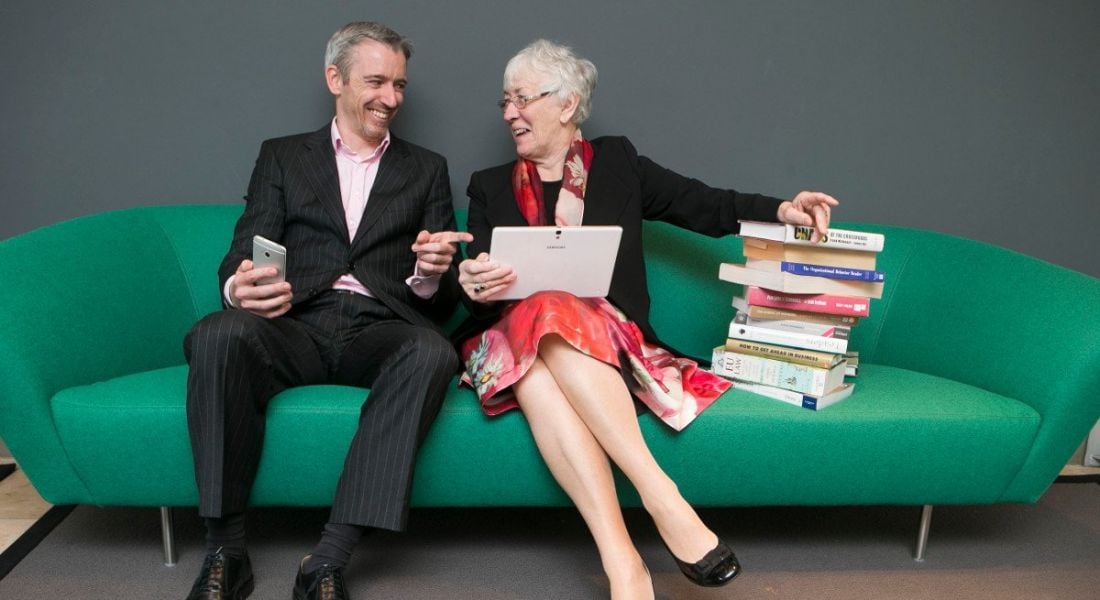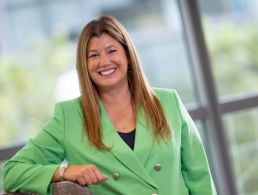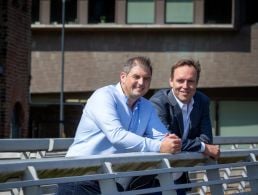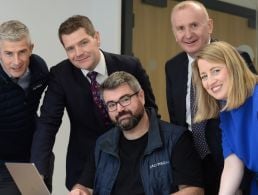Education is one of the most important assets to jobseekers. But what if access to education is not all that easy? Liz Waters talks about how An Cosán together with Three are providing equal access to higher education.
We all know that good education is the most effective way of improving the lives of those living in poverty and helping people to break free from poverty. In fact, according to Nelson Mandela, “Education is the most powerful weapon, which you can use to change the world,” and who are we to argue with him?
At An Cosán, we have been committed to equal access to higher education since we established 30 years ago. Our mission is to empower people through education. We provide people with a pathway to learning, leadership and enterprise and we are now the largest community education organisation in Ireland.
However, in recent years we became more aware of people in our society that wanted access to our education services, but there were a variety of barriers in their way. One barrier we identified was simply attending classes, and this is where a clever technology solution comes into play.
We recognised that the use of technology and virtual learning was the best way to break down access barriers and bring education into people’s homes or living rooms. It would help us to bring our ethos beyond our physical location in Jobstown in Dublin to communities around the country.
Virtual education
This is where the idea of Virtual Community College (VCC) was born. Through a network of community educational partners across the country and using the enormous technology developments available to us, we could make learning accessible to all, no matter what part of the country the student was in.
VCC uses blended learning leveraging the latest technologies, combining a virtual classroom, online live lectures with independent activities, assignments and face-to-face sessions in community partner settings. These technology-enhanced community hubs – urban and rural – are spread across the country, ensuring the students have access to the most up-to-date educational methods and can learn effectively at a pace that suits them.
As educators who were intent on harnessing technology, we didn’t have the necessary skill set to bring the Virtual Community College to life. However, our charity partner Three had the know-how and the appetite to take it on. We had access to their highly skilled employees who volunteered their skills in website and app development, social media and important corporate governance issues such as data protection.
Creating access
We were able to avail of Three’s consultancy and expertise in educational IT platforms. They facilitated visits to customer sites for demonstrations and provided consultancy on specialist IT platforms. This type of support was tremendous for us and, with Three’s guidance, we implemented an Office 365, Moodle and Adobe Connect virtual educational solution.
This is harnessed in an innovative and progressive way to develop a bespoke model for community education. Having worked with them for two years, we created a mobile platform, which is accessible to those living with inequality and social injustice and we are starting to see real, tangible results.
Through virtual learning, students now have access to a wide variety of educational options that may not have been available before. It allows students to access course work at a time that suits them best and fit their learning around their own schedules. Our model actively encourages collaboration and facilitates networking opportunities through student participation and engagement.
Now that we have our education platform in place, our collaboration with Three is now moving to focus on providing enhanced connectivity to our community partners. We have seen this with Access 2000 in Wexford. Access 2000 is a community development centre, which evolved to enable women from Wexford to develop the skills necessary for them to feel worthwhile in the workforce and their communities.
In order to deliver the VCC model, Access 2000 needed enhanced internet connectivity. To help them, Three provided a mobile broadband ‘pop-up’ solution using a Huawei B513s modem to connect to its high-speed 4G network in Wexford. This solution is delivering the bandwidth to four students from Access 2000, enabling them to access the Adobe Connect live classroom once a week for three hours transmitting all the voice, chat and video feed required for those weekly sessions.
Student engagement
The VCC strives to be a student-centred institution. We understand that every student’s needs are unique and individual to that person. We work with each student to put a ‘personalised scaffolding’ in place, ensuring they have the right supports for their needs so they can achieve their full potential. Students can also avail of support from Three employees through its bespoke e-mentoring programmes, which links a dedicated mentor to a VCC student.
M-learning, or mobile learning, is a big area for this. It helps us breakdown barriers to education and make learning ‘couchable’. For students who are unable to attend classes for any reason, be it that they live in a rural location, or have children to take care of, or simply can’t afford to travel to classes, m-learning gives them the option to learn from home.
VCC is at a crucial point in its development and is scaling quickly. To date, 156 learners have completed our programmes and, with 13 new programmes on offer at present, we aim to reach our target of 1,000 learners a year within the next two years.
Education is about more than just a piece of paper, it’s about social progress. At VCC we try to engage with students who wouldn’t normally access education. By completing a VCC programme, students can take the first step in achieving their potential.
Steve Jobs once said that, “Technology is nothing. What’s important is that you have a faith in people, that they’re basically good and smart, and if you give them tools, they’ll do wonderful things with them.” At Virtual Community College, we are working to empower people through education. Technology is playing a vital part in this but it’s the people that come to us that are most important. I look forward to seeing them do wonderful things.
By Liz Waters
Liz Waters is the director of An Cosán Virtual Community College.
Looking for jobs in tech or science? Check out our Employer Profiles for information on companies hiring right now.




